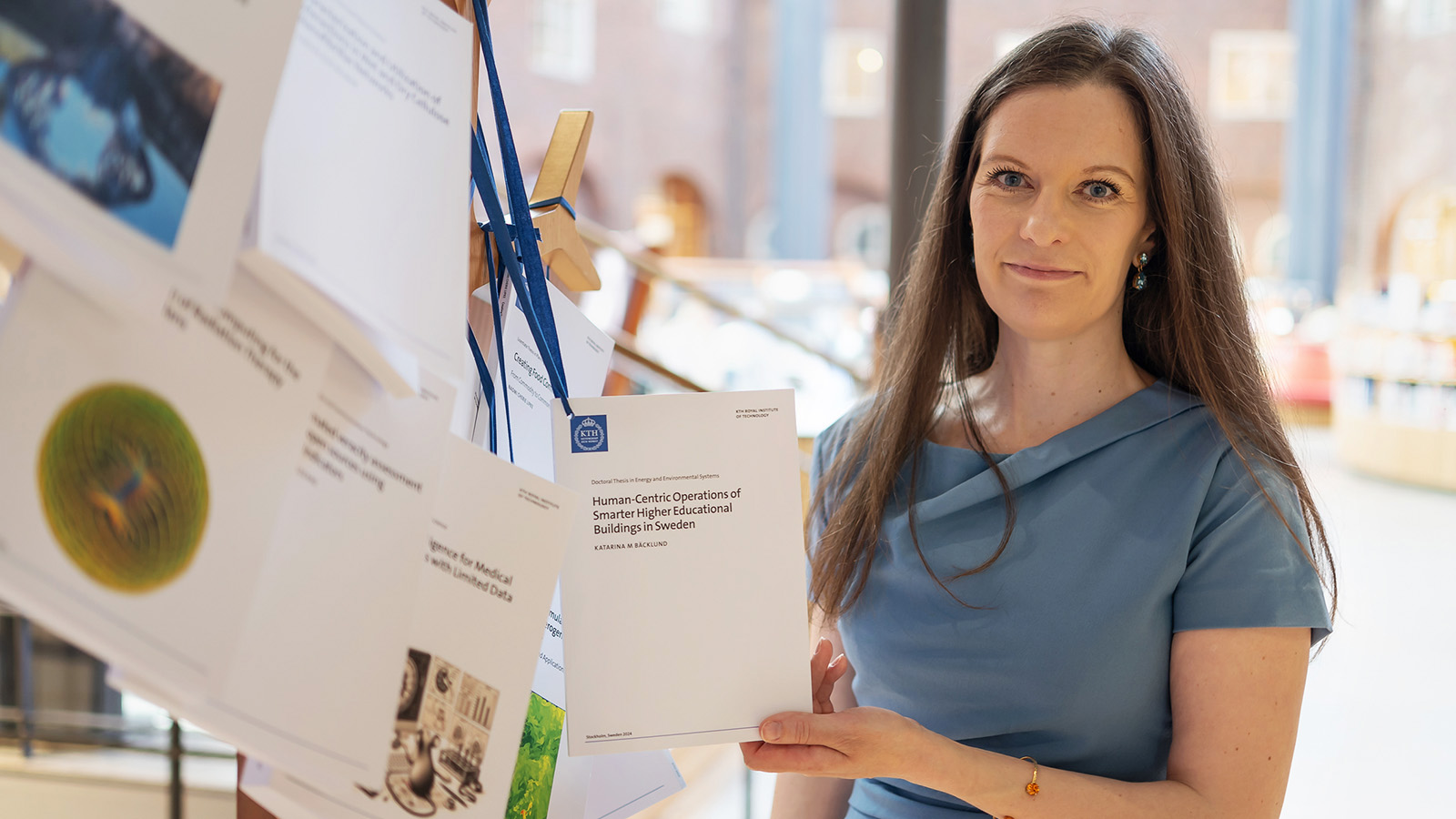New thesis on human-centered digital transformation in buildings

Katarina Bäcklund's research indicates that smart buildings are not yet smart enough, and that not all data is smart data. There is still much to be done before the digital transformation can be fully used to operate buildings with better indoor comfort and lower energy consumption.
On May 16, Katarina Bäcklund posted her thesis, "Human-Centric Operations of Smarter Higher Educational Buildings in Sweden," at KTHB. Two days later, she defended it at KTH.
What is your thesis about?
”My central research question is about how digital transformation can be utilised to operate sustainable buildings with a focus on the users. The thesis is an exploratory study that addresses four research areas that together form an important whole: higher education buildings, users, smart building systems, and property organisation.”
What are the benefits of increased digititalisation in buildings?
”With the help of smart building systems and innovations, we can improve both indoor comfort and energy usage. Buildings contribute significantly to climate impact. At the same time, it is important to invest in our educational buildings so that students, researchers, and teachers have access to a healthy and comfortable indoor environment – something that is also energy-intensive.”
How far has the development come?
”One of my conclusions is that buildings equipped with smart building systems are still not smart enough. "User-centric design" is something that needs to be developed, as well as the user-friendliness of the systems that were analysed in this study.”
Do you have an example?
”I conducted a survey study in ”Undervisningshuset” (the Teaching House) at KTH, where 300 students participated. An interesting result was that 70 percent did not understand how the temperature controllers worked. These are displays where users can adjust their indoor temperature by raising or lowering it. These displays are an example of smart building systems where there is more to be desired in terms of user-friendliness.”
Who will benefit the most from reading your dissertation?
”Researchers in the field, and those who work daily with the operation and management – not only of educational buildings but also similar commercial buildings where people work and spend a significant part of their day, such as offices.”
The thesis includes suggestions for improved innovation processes within organisations. Will you follow up on your results?
”I have good collaborations with several researchers at KTH, and we have already discussed continuing to work on digitalisation challenges and opportunities for our built environment.”
